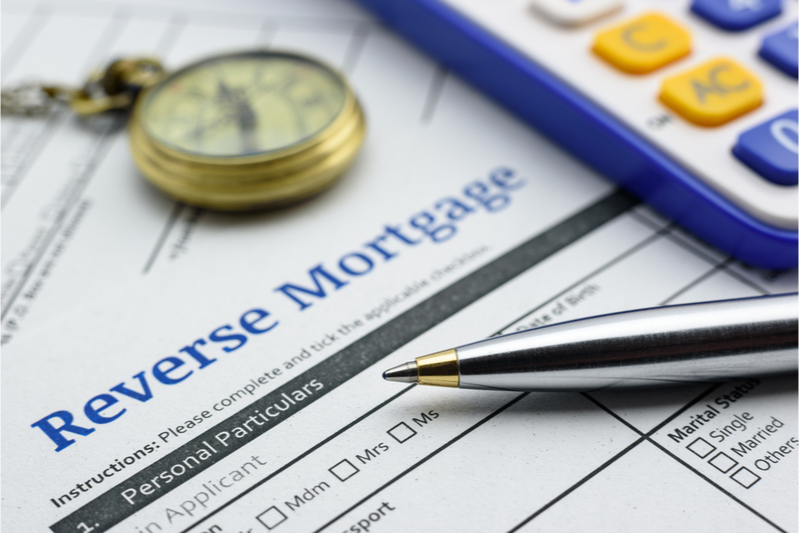Reverse Mortgages: A Great Retirement Decision
One of the benefits of being a senior citizen is you finally get to retire. While retirement has many advantages, there are some risks as well. If you do not have a large enough savings, you may find yourself running out of money.
This is especially common if there is an unexpected expense in your life, such as a medical issue. If you are over the age of 62 and struggling with your finances, one of the most effective ways to improve your finances is through a reverse mortgage.
When you take out a reverse mortgage, you convert the equity of your home into cash. For seniors, the biggest perk of getting a reverse mortgage is making money from your home without having to sell it. Many seniors choose to get a reverse mortgage because they have been living in the same home or community for most of their life. Another benefit is there are no monthly bills to keep track of, making it much more appealing than other financial systems. There are many potential benefits to taking out a reverse mortgage, but there are also some risks to consider as well.
What is a reverse mortgage?
When you have a traditional mortgage, you pay a lender every month. Once you finish paying off your mortgage, you become the official owner of your home. With a reverse mortgage, you take a portion of your home equity, which is the difference of what you owe on your mortgage and the current value of your home. The portion you take out is then provided to you in monthly payments.
As long as you are living in the home, you do not have to pay back any of the money you receive. If you decide to move or sell your home, your reverse mortgage must be paid back in its entirety. If you pass away before paying off your reverse mortgage, your family or estate inherits the payments. Whoever inherits the payment is allowed to sell off your home to cover the reverse mortgage costs.
There are several different types of reverse mortgages available. With some, you work alongside state or local government agencies to receive your payments. In other cases, you must go through a private lender or a nonprofit group. With most types of reverse mortgages, the income you receive is not taxable. This means your eligibility for need based programs like Medicare or Social Security are not affected by your reverse mortgage.
Types of Reverse Mortgages
There are three categories of reverse mortgages. The first type is a single-purpose reverse mortgage. This is often the least expensive option, especially if it is available from the state or local government groups. Some non-profit groups also provide single-purpose reverse mortgages, but this varies depending on where you live.
These types of reverse mortgages are used for a specific purpose, such as paying off your property taxes or making improvements to your home. When you apply for your reverse mortgage, you must clearly provide how you intend to spend the money. Because single-purpose reverse mortgages have such strict restrictions, they often have the fewest eligibility requirements, so it is easy to get even with a low credit score.
Your second option is a propriety reverse mortgage, which is only available from a private lender. How much you receive from the lender is largely based off of the current value of your home. Before you get a propriety reverse mortgage, get an appraisal for your home. Private lenders are allowed to ask what you intend to use the funds for, but there are no restrictions placed on what you spend the money on.
The third option is a home equity conversion mortgage (HECMS). HECMs are backed by the Department of Housing and Urban Development (HUD). There are no restrictions on how you spend money from a HECM. Since it is a federally back loan, the application process for a HECM is much longer than other reverse mortgages. During this period, you must meet with a housing counselor. He or she goes over the conditions of the loan and explains how it must be repaid. In some cases, you must pay a fee to meet with a counselor, but this is waived for lower-income seniors.
Best Reverse Mortgage Lenders
Each lender sets different eligibility requirements for your reverse mortgage. How much you receive also varies greatly depending on the lender. One of the top lenders in the northeast is Quontic Bank. Quontic has expanded digitally to serve customers throughout the United States. Quontic uses the same eligibility requirements set by HUD for HECMs, but instead of going through housing counselors, you work with Quontic loan officers.
Another recommended lender is the American Advisors Group (AAG). AAG offers an immediate lump-sum payment, providing up to 60 percent of your equity within the first year. This is especially helpful if you need your reverse mortgage for a sudden emergency or other unexpected expense.
All Reverse Mortgage Inc (ARLO) is one of the best lenders in terms of variety, offering multiple types of reverse mortgages. ARLO also has a convenient calculator, so you can figure out exactly how much you will reverse with all your payments. On average, seniors receive between 40 and 60 percent of their home value from an ARLO reverse mortgage.


